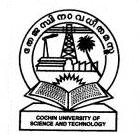Best Law Colleges in Kerala
Kerala is a prominent destination for legal education. The state has some of the well-reputed institutions, such as the National University of Advanced Legal Studies (NUALS), Cochin University of Science and Technology (CUSAT), and Government Law College, Ernakulam. These institutions provide strong academic programs along with practical aspects through moot courts and internships.
Students benefit from exposure to courts, law firms, NGOs, and corporate offices in cities like Kochi and Thiruvananthapuram. The state features affordable fees in government colleges and higher fees at private institutions and NUALS. The comprehensive law education framework in Kerala builds career-ready graduates.
Overview of Top Law Colleges in Kerala
Particulars | Details |
Total BCI-approved law colleges | 40+ (government and private) |
Courses offered | 5-year LLB (BA LLB, BBA LLB, BCom LLB), 3-year LLB, LLM, PhD, Diplomas, Certificates |
Admission criteria | Entrance exams, direct/merit-based |
Top entrance exams accepted | CLAT, KLEE (UG/PG), CUSAT CAT |
Approximate fees | Rs 30k-10L total |
List of Popular Law Colleges in Kerala
College name | NIRF 2025 rank | Courses offered | Ownership | Fees |
National University of Advanced Legal Studies (NUALS), Kochi | - | BA LLB, LLM, PhD | Government | Rs 1,65,600/year |
School of Legal Studies, CUSAT, Kochi | 13 | BA LLB, BCom LLB, LLM | Government | Rs 35,880/year |
Mar Gregorios College of Law, Nalanchira | - | BA LLB, BCom LLB, LLM | Private | Rs 36,750/year |
Govt. Law College, Ernakulam | - | 3-yr LLB, 5-yr integrated LLB, LLM | Government | Rs 1,575/year |
Govt. Law College, Thiruvananthapuram | - | 3-yr LLB, 5-yr integrated LLB, LLM | Government | Rs 1,575/year |
Admission Criteria
Most law colleges in Kerala admit students through national or university entrance tests. For 5-year integrated programmes, CLAT is the main route for NLUs and is primarily accepted by NUALS Kochi and several private colleges. CUSAT conducts its own entrance exam named CUSAT CAT. Other government and some state universities accept the Kerala Law Entrance Exam (KLEE) or conduct their own admission test.
Entrance Exams Accepted in Top Law Colleges in Kerala
CLAT (UG & PG):
The Common Law Admission Test (CLAT) is accepted by NUALS Kochi and other National Law Universities across India. It serves as the main gateway for 5-year BA LLB (Hons.) and LLM programs. CLAT evaluates students on English, legal reasoning, logical aptitude, current affairs, and quantitative techniques.
KLEE (Kerala Law Entrance Exam):
KLEE is conducted by the Commissioner for Entrance Examinations (CEE), Kerala. It is compulsory for admission to government law colleges and several affiliated private institutions within the state. The test is held for both integrated BA LLB and LLM courses.
CUSAT CAT:
The CUSAT CAT is held by Cochin University of Science and Technology for admission into its integrated BA LLB (Hons.) and BBA LLB (Hons.) programs. The same test is also used for LLM admissions at the university.
Direct Admissions
Some private colleges offer direct admission under management and NRI quotas. These seats follow university eligibility and usually involve higher tuition fees. Selection may be considered based on class 12 marks, interviews, or university discretion. Government colleges do not generally provide direct admissions and prioritise merit-based entrance exams. Students should verify transparency, reservation details, refund policy, and official admission notice before choosing direct admission.
Programme-wise Eligibility for Kerala Top Law Colleges
5-Year Integrated LLB (BA LLB / BBA LLB)
Must have passed class 12 or equivalent from a recognised board.
Minimum marks: ~45% for general; relaxations for reserved categories.
Age limits are usually not applied.
3-Year LLB
Requires a bachelor’s degree in any discipline from a recognised university.
Minimum undergraduate percentage varies by college.
Entry via university/state tests or merit lists. This route suits graduates who decide on law after their first degree.
LLM
Requires an LLB degree (3-year or 5-year).
Minimum marks are often around 50% for general and 45% for reserved categories.
PhD in Law
Requires an LLM degree or equivalent with minimum marks as per UGC norms.
The selection process includes a research proposal, an interview, and an academic record.
Placements in Top Law Colleges in Kerala
Placements in top Kerala law colleges have shown a steady rise in recent years. Top recruiters across these colleges include leading law firms, consulting companies, banks, and NGOs. Some students also pursue higher studies or prepare for civil services and judiciary exams.
Placements depend on college reputation, student performance, and internships completed during study. Checking the latest placement reports of each institution helps students set realistic career goals.
Top Law Colleges in Kerala: Placement Highlights
College | Median package (INR LPA) | Top recruiters |
NUALS, Kochi | 8–10 | S&R associates, Nishith Desai Associates, Economic Laws Practice, DSK legal, Daksha legal advocates, Banana IP counsels, Cyril Amarchand Mangladas & co, Anand & Anand, Dua associates |
School of Legal Studies (CUSAT), Kochi | 4–7 | Law firms, corporates, judiciary |
Government Law College, Ernakulam | 1.5–3 | Local courts, government departments, and alumni |
Kerala has built a strong reputation in legal education through its wide network of government and private law colleges. From affordable options in state-run institutions to globally recognised centres such as NUALS, students have diverse opportunities available that suit their ambitions. The presence of reputed recruiters, active internship culture, and exposure to courts and law firms make Kerala very attractive to law aspirants. Whether students aim to practice law or judiciary, or pursue a career in the corporate or academics, these law institutions lay the right foundation to shape successful futures.
School of Legal Studies CUSAT - School of Legal Studies, Cochin University of Science and Technology, Kochi
NLU Kochi - National University of Advanced Legal Studies, Kochi
Careers360
: 37- Exams: CLAT
- Fees : ₹8.85 Lakhs
- P.G.D (5 Courses)
CUSAT Kochi - Cochin University of Science and Technology, Kochi
NIRF Ranking:
13- Exams: CUSAT CAT
- Fees : ₹1.23 Lakhs
- P.G.D (1 Course)

AIM College of Law, Thrissur
- Exams: CLAT
- Fees : ₹10 Lakhs
- L.L.M (3 Courses)
Al-Azhar Law College, Thodupuzha
Ownership:
Kumaramangalam part, Kerala
Al-Azhar Law College, Thodupuzha
Ownership:
Kumaramangalam part, Kerala
Aligarh Muslim University, Malappuram Centre
Ownership:
Malappuram, Kerala
Aligarh Muslim University, Malappuram Centre
Ownership:
Malappuram, Kerala

Aligarh Muslim University Malappuram Centre, Malappuram
- Fees : ₹11.57 Lakhs
BSOLS Chunangamvely - Bharata Mata School of Legal Studies, Chunangamvely
Bhavan's NA Palkhivala Academy for Advanced Legal Studies and Research, Ramanattukara
Bishop Moore College, Mavelikara
- Fees : ₹6.80 K

Central University of Kerala, Kasaragod
- Exams: CUET PG
- Fees : ₹56.76 K
- Ph.D (1 Course)
Co-Operative School of Law, Thodupuzha
CSI College for Legal Studies, Kanakkary
- Fees : ₹2.22 Lakhs
- B.Com.L.L.B (2 Courses)
CSI Institute of Legal Studies, Cheruvarakonam

Divine Law College, Pathanapuram
- Fees : ₹90 K
Government Law College, Ernakulam
Government Law College, Kozhikode
Government Law College, Thiruvananthapuram

GLC Thrissur - Government Law College, Thrissur
G-CLAR Kayamkulam - Guru Nithya Chaithanya Yathi College of Law and Research Centre, Kayamkulam
Ownership:
Kayamkulam, Kerala
G-CLAR Kayamkulam - Guru Nithya Chaithanya Yathi College of Law and Research Centre, Kayamkulam
Ownership:
Kayamkulam, Kerala
- Fees : ₹90 K
Indira Gandhi Law College, Ernakulam
Kerala Law Academy Law College, Thiruvananthapuram

Kerala University of Fisheries and Ocean Studies, Kochi
Ownership:
Kochi, Kerala
Kerala University of Fisheries and Ocean Studies, Kochi
Ownership:
Kochi, Kerala
LavKush Vidhi Mahavidyalaya, Pariyar
MG University (MGU) - Mahatma Gandhi University, Kottayam

Mar Gregorios College of Law, Nalanchira
Mar Ivanios Law College, Alappuzha
- Fees : ₹90 K
MCT College of Legal Studies, Malappuram

Mount Zion Law College, Pathanamthitta
Ownership:
Pathanamthitta, Kerala
Mount Zion Law College, Pathanamthitta
Ownership:
Pathanamthitta, Kerala

Sree Narayana Guru College of Legal Studies, Kollam
Ownership:
Kollam, Kerala
Sree Narayana Guru College of Legal Studies, Kollam
Ownership:
Kollam, Kerala
- Fees : ₹2.38 Lakhs
- L.L.M (3 Courses)
Sree Narayana Law College, Poothotta
St Thomas College, Thrissur
The School of Indian Legal Thought, Mahatma Gandhi University, Kottayam
Ownership:
Kottayam, Kerala
The School of Indian Legal Thought, Mahatma Gandhi University, Kottayam
Ownership:
Kottayam, Kerala

Calicut University - University of Calicut, Malappuram
Kerala University - University of Kerala, Thiruvananthapuram
VR Krishnan Ezhuthachan Law College, Palakkad
Ownership:
Palakkad, Kerala
VR Krishnan Ezhuthachan Law College, Palakkad
Ownership:
Palakkad, Kerala
- Exams: CLAT
- Fees : ₹10 Lakhs
- L.L.M (3 Courses)




